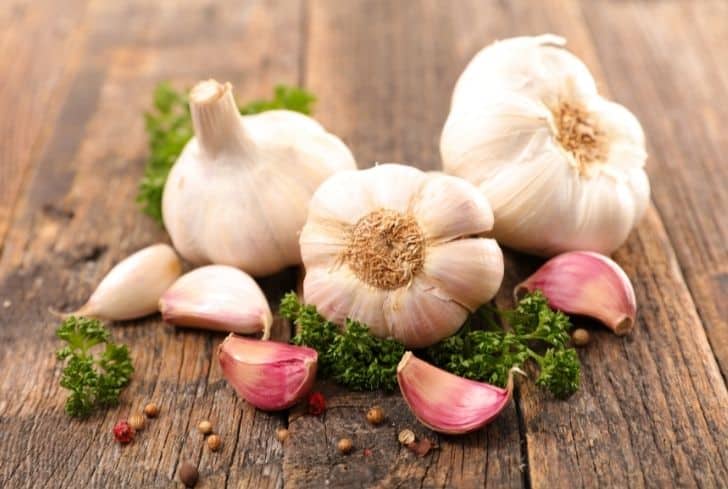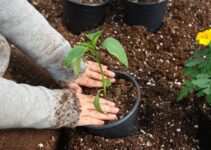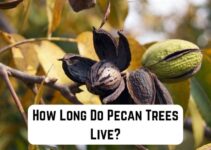The Greek physician Hippocrates, often called the father of Western medicine once said “Let food be thy medicine, and medicine be thy food.” He was best known to prescribe garlic to treat a variety of medical conditions. Garlic is perhaps the best embodiment of Hippocrates’ words and has been used for centuries. It is widely used today as a flavoring in cooking, but it has also been used as a medicine throughout ancient and modern history.
Garlic has been taken to prevent and treat a wide range of conditions and diseases. For thousands of years, garlic was believed to have medicinal properties and modern science has confirmed the same. However, is there more to garlic? Can it provide more to other plants and the soil as well? This article looks into composting garlic.
Can Garlic Go in Compost?
Relax, garlic is compostable! No matter how old or fresh the garlic is, you can put it in compost. Every part of garlic, in fact, can be composted, including the cloves, skins, and scalps. Some might say that composting garlic is a waste of garlic as it can be regrown.
True as that statement might be, what about creating rich humus or compost that can benefit any other plant? Garlic will break down over time, along with everything else in the composting process. Garlic can also be used to deter vermin from the composting bin. Fresh garlic can deter vermin but the best one for this work is dried-out garlic.
Mice find the smell of garlic particularly disturbing and using garlic to deter rodents will only work for low levels of infestation. Remember, garlic can also have an effect on worms that work inside the compost, so remember to balance the equation out. To better deter the mice, use powdered garlic for the best results
However, composting garlic has its few cautionary measures that ought to be checked.
First, garlic cloves tend to re-sprout if left whole. As such, they should be chopped into small pieces if you are going to compost them. This ensures they do not start growing inside the composting bin and also ensures they compost quickly.
Secondly, alliums like onions and garlic are not welcome in a worm bin. Worms are put off by the strong smell of the garlic and they will avoid chomping on the garlic altogether. This will also cause your compost to either slow down or be incomplete because the garlic does not decompose fully.
The only way out of this conundrum is to limit the amount of garlic you add to the compost. Rather than risking your compost with the excess garlic, you should just replant it and grow more for future use.
Can You Compost Garlic Skin?
Of course, you can compost garlic skins and leaves. They are a great addition to the compost pile and break down over time. Garlic skins and leaves do not have negative effects against the microbes present in the compost pile. They are therefore okay to be composted.
Garlic skin is good for plants because it adds nutrients to compost and subsequently to the plants. Onion and garlic skins are a great way to add nutrients to your compost stack. So never throw away your garlic peels as they are very good for your plants.
However, there are a lot of other uses for garlic skins apart from composting that one can consider, like in cooking and skincare. If you do not want to compost them, use garlic skins inside the house. They are packed with vitamins and antioxidants that can be transferred into the food when you cook with them.
Can You Compost Garlic Mustard?
Yes, garlic mustard can be composted, but the general consensus is against composting it. Garlic mustard is an invasive plant species that blocks other plants from accessing sunlight as well as competes with them for moisture and vital nutrients. It is a threat to biodiversity, affecting fields and forests, and spreads when its seeds are dispersed by wind.
The best way to kill the weed is manually by uprooting it before it sets seeds as yanking the plant from the ground will spread the seeds. After pulling all the plants, you can put them in the garbage or compost them.
As compost, they will be part of the ‘green’ components, providing nitrogen to the compost. Oh, and do not forget garlic mustard is edible, although the older plants need to be cooked thoroughly as they contain cyanide.
Unfortunately, the biggest challenge with garlic mustard is the seeds. The seeds can enter the compost and start germinating. They can also continue with life once they are placed in the garden. As such, be very careful about the seeds and do not allow them in there.
Alternatively, crush them into a fine powder, in a way that they cannot grow. You can also put them in hot compost, where they have no chance of germinating and will only be killed by the heat. You can also store the garlic mustard in black plastic bags or securely between dark-colored plastic tarps to allow it to compost in the sun over time.
Heat destroys the seeds and their viability to grow, so the plant matter can be dumped into a regular composting pile. On this option, proceed with caution until you are certain that the composting heat was sufficient to destroy seed viability. Unfortunately, if you are composting at home, composting wild garlic might not be the best as most home piles do not get hot enough.
Can You Compost Garlic Bread?
Garlic bread is compostable. It is made from bread topped with garlic and olive oil or butter and any other additional herbs. Garlic bread will decompose quickly, adding nitrogen to your compost pile. The unfortunate thing with composting garlic bread, like any other food scraps, is the invitation of pests.
However, with the right level of preparation, there is no reason you should leave garlic bread out. It can add to your compost just like any other organic waste. Remember, some composting methods will be better suited than others for dealing with garlic bread and food scraps from your kitchen.
First, do not put in bread that has a lot of garlic in it. Garlic in itself affects the worms working on the compost and a lot of garlic will slow down the entire process.
Secondly, only compost the bread in a compost that can be closed tightly. This is because, as it decomposes, the garlic bread will attract pests who might do everything possible to enter the composting bin. As such, ensure your compost is closed well to avoid their interference.
Finally, try placing the garlic bread at the center of the pile. It is the hottest part inside the pile, meaning the bread will decompose quite quickly and will not attract too many pests
Can You Compost Food That Has Garlic in It?
Indeed, you can compost food that has garlic in it. Like composting garlic bread, foods containing amounts of garlic can also be composted. Whether the food is cooked or raw, the garlic traces in it will not affect your compost. However, consider chopping the garlic cloves in your raw food to avoid regrowth in the compost, as well as allow for speedy decomposition.
Any food that you have prepared and contained garlic, of any type in it, can safely go in the compost bin. With such cooked food, the strength of the garlic element will be very minimal, and safe enough for the worms inside the composting pile. It, therefore, does not affect the entire compost as a whole.
However, caution is advised. Any food that contained garlic and goes inside the compost, will compost but will release some foul odors. These stinky smells are unpleasant to us humans but are very inviting for pests like rats, raccoons, biting flies and bees, among others.
They will search for the source of the smell and will therefore try to get inside the composting bin. As such, be sure to close it tightly, so that they do not manage to have their way in.
The other problem with composting cooked foods, even if they contain garlic, is making the entire process go anaerobic because of certain bacteria present in some cooked foods. An anaerobic composting process will hamper the whole composting process. As such, be careful when composting foods cooked with garlic
Another issue with foods cooked with garlic is the presence of cooking oil. Cooking oil is heavily discouraged inside a composting bin because it attracts vermin. Oil and grease are not the best addition to a compost pile as well because they are very slow to break down and can create barriers in your compost which air and oxygen cannot penetrate.
They can also coat your organic materials with a water-resistant barrier, which reduces airflow and slows down the decomposition process. So, if you have a large, healthy compost pile, then a small amount of oil and butter will not cause any problem.
However, If your food contains a lot of cooking oil, consider hot compost. Also, adding some brown materials at the same time as the cooked garlic will help stop any pests from discovering it.
Does Garlic Affect Worms?
Of course, garlic can affect worms. However, this depends on the amount of garlic you introduce inside the composting bin. Garlic is one of the few things that is not recommended for addition in a worm bin, especially if you have a small or new system.
It is not that the garlic will not get broken down; it will. It is just that the worms do not like it. Worms are sensitive creatures, and strong or odorous foods, including those containing garlic, can overwhelm them. Any garlic you put in your bin will be left alone by the majority of worms until it has completely rotted down.
Another reason why worms can be affected by garlic is the results of the decomposition process. As garlic decomposes, it releases sulfur gas which gives off a putrid smell. The smell coming out of the composting bin can hang around for months.
The sulfur, in addition to other gases given off in the decomposition process, can also irritate the worms. In their natural habitat, the worms can easily avoid things that irritate them, but in a small confined bin, this becomes harder. By adding garlic, you will be creating an unpleasant environment for the worms, and this will slow down your overall system.
Garlic is also known to repel certain insects, like Japanese beetles, weevils, fruit tree borers and spider mites. These are part of the pests that might come in and try to disrupt your compost, but the garlic will repel them on its own.
Garlic is also known for its skincare benefits, fighting against bacteria that cause acne. So, not only does garlic repel pests, but it can also kill harmful bacteria. As such, not only does garlic affect worms, but also other bacteria and insects and pests, both good and bad.
References:
https://www.healthline.com/nutrition/11-proven-health-benefits-of-garlic






